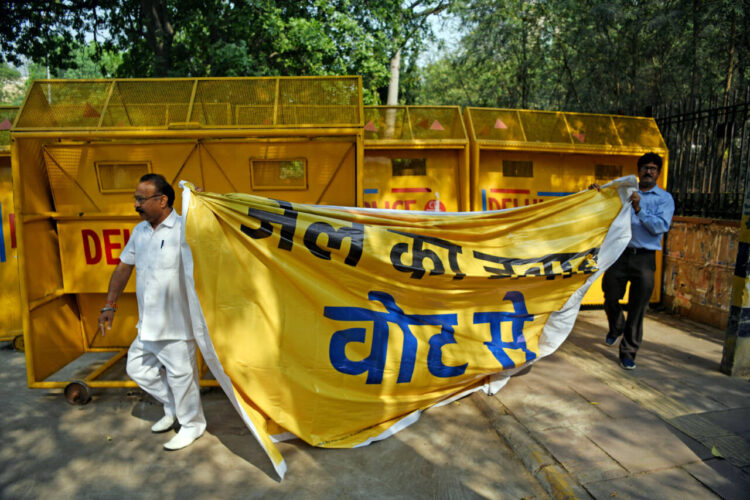In a significant development, the Enforcement Directorate (ED), which apprehended Chief Minister Arvind Kejriwal on March 21 in connection with the Delhi excise policy case, informed the Supreme Court on Friday about the discovery of “personal, direct chats” between Kejriwal and an undisclosed hawala operator. Kejriwal’s legal counsel contested this revelation, questioning whether the agency had deliberately withheld this information until now to influence the outcome.
The bench, comprising Justices Sanjiv Khanna and Dipankar Datta, reserved its judgment on Kejriwal’s petition challenging his arrest by the ED. The agency’s investigation revolves around accusations of money laundering associated with the Delhi excise policy case.
Additional Solicitor General S V Raju, representing the ED, refrained from disclosing the identity of the hawala operator but emphasized the discovery of communication exchanges between Kejriwal and the operator. This disclosure came in response to a query from Justice Khanna regarding the evidence provided by the agency post the Manish Sisodia judgment, which the ED relied upon.
Senior Advocate Abhishek Manu Singhvi, appearing for Kejriwal, objected to the timing and nature of Raju’s statements, questioning whether they were intended for the court or for public consumption. Solicitor General Tushar Mehta also intervened, reminding the court that they were addressing legal proceedings, not conducting a press conference.
Singhvi further raised concerns about the fairness of presenting such crucial information at the eleventh hour, suggesting it could prejudice the case. He expressed skepticism about the timing of the arrest of the hawala operator, insinuating that the ED might have deliberately suppressed evidence until now.
The bench, meanwhile, requested access to the case files, indicating a desire to examine witness statements recorded by the probe agency following the denial of bail to former Deputy Chief Minister Manish Sisodia. The court also clarified that Kejriwal could seek bail from the trial court if advised, despite reserving its judgment.
Earlier arguments from Singhvi highlighted the agency’s selective reliance on witness statements, disregarding those favoring his client. Raju countered this assertion by stating that the defense of the accused is not considered during the framing of charges, let alone during arrest proceedings.
The exchange in court underscored the complexities of legal interpretation, with discussions ranging from the threshold for arrest to the weight of evidence required. Singhvi questioned the integrity of witness statements, pointing out potential biases and affiliations.
Amidst these legal debates, the core allegations against Kejriwal regarding bribery and hawala transactions continue to shape the legal battle, highlighting the nuanced interplay between law enforcement, judicial scrutiny, and political ramifications.

















Comments